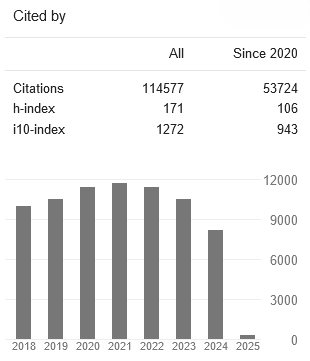Motivation and Intention to Stay in South Korea's Automobile Parts Industry
- Inez Kim
Abstract
Companies with low employee retention rates face declines in productivity, revenue, and operational disruptions. This issue is particularly problematic in South Korea, the world’s fifth-largest car maker, whose automobile industry, the second-largest exporter, plays a significant role in the country’s gross domestic product. This study employed a quantitative correlational design and analyzed survey responses from 217 administrative employees at a South Korean automobile parts company to investigate the relationship between job satisfaction, job engagement, motivation, career growth, and employees’ intention to stay. The results showed that all factors except job engagement had a positive relationship with the intention to stay. A second regression was run to address multicollinearity using only job satisfaction and career growth. Both remained significant and explained over 50% of the variance in the outcome. In addition to the regression results, descriptive analysis identified the top satisfiers as recognition, growth, and responsibility, and the main hygiene factors as interpersonal relationships, salary, and personal life. Using these findings, the paper introduces the IK Model (IKM), a practical framework for employee retention that focuses on growth, responsibility, and recognition. The IKM offers customized strategies tailored to age and tenure, helping employers address the diverse needs of their employees. This study contributes to the human resource management (HRM) literature by introducing an original, data-driven model grounded in empirical findings from South Korea’s automobile parts industry—an economically significant yet under-explored context.- Full Text:
 PDF
PDF
- DOI:10.5539/ijbm.v20n5p139
Journal Metrics
Google-based Impact Factor (2023): 0.86
h-index(2023): 152
i10-index(2023): 1168

Index
- Academic Journals Database
- ACNP
- AIDEA list (Italian Academy of Business Administration)
- ANVUR (Italian National Agency for the Evaluation of Universities and Research Institutes)
- Berkeley Library
- CNKI Scholar
- COPAC
- EBSCOhost
- Electronic Journals Library
- Elektronische Zeitschriftenbibliothek (EZB)
- EuroPub Database
- Excellence in Research for Australia (ERA)
- Genamics JournalSeek
- GETIT@YALE (Yale University Library)
- IBZ Online
- JournalTOCs
- Library and Archives Canada
- LOCKSS
- MIAR
- National Library of Australia
- Norwegian Centre for Research Data (NSD)
- PKP Open Archives Harvester
- Publons
- Qualis/CAPES
- RePEc
- ROAD
- Scilit
- SHERPA/RoMEO
- Standard Periodical Directory
- Universe Digital Library
- UoS Library
- WorldCat
- ZBW-German National Library of Economics
Contact
- Stephen LeeEditorial Assistant
- ijbm@ccsenet.org
